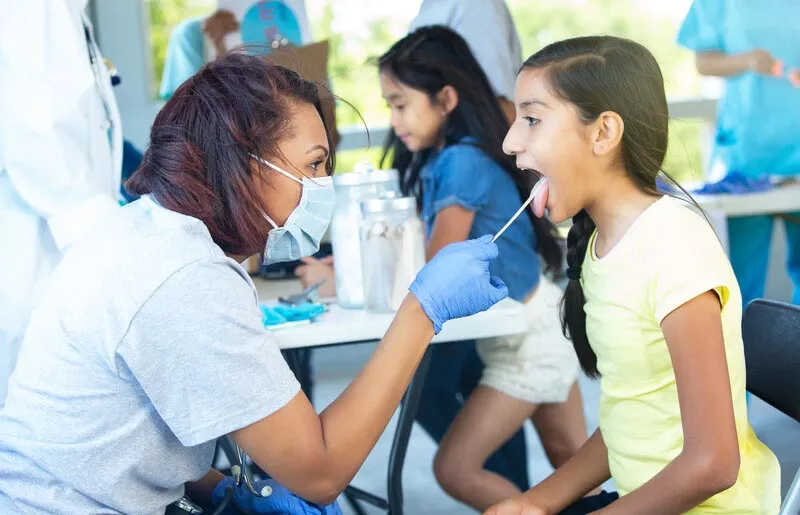
Photo: SDI Productions/Getty Images
The Centers for Medicare and Medicaid Services is expanding Medicaid services to American Indian and Alaska Native communities by approving Medicaid State Plan Amendments (SPAs) in several states.
The amendments give the Indian Health Service (IHS) and tribal clinics the Medicaid funding to support care beyond the physical clinic site, such as in homes, schools and other community locations.
It applies to 89 tribes and Alaska Native populations in Minnesota, New Mexico, Oregon, South Dakota, Washington and Wyoming.
"Until last year, federal rules prevented IHS and Tribal Medicaid clinic services providers from delivering Medicaid clinic services to vulnerable Tribal patients outside the four walls of the clinic," said CMS Administrator Dr. Mehmet Oz. "These approvals help vulnerable Americans get care when and where they need it most."
WHY THIS MATTERS
American Indian and Alaska Native individuals face high rates of chronic illness, substance use disorders and complex health needs, CMS said.
The amendments give IHS and Tribal Medicaid clinic service providers in several states greater flexibility to deliver care where their patients need it most, including in hard-to-reach and remote areas, CMS said.
CMS said it worked extensively with tribal governments, the CMS Tribal Technical Advisory Group and the Secretary of Health and Human Services' Tribal Advisory Committee to help ensure the rule changes addressed long-standing tribal concerns.
The approved SPAs reflect each state's formal attestation to adopt the mandatory exception to the Medicaid clinic services' "four walls" requirement for IHS and tribal clinics in Minnesota (11 tribes), New Mexico (22 tribes), Oregon (9 tribes), South Dakota (9 tribes); Washington (29 tribes) and Wyoming (9 tribes).
THE LARGER TREND
In June 2024, the Supreme Court ruled that the federal Indian Health Service is required to reimburse tribes for overhead costs for contracted health services from third parties, including private insurers, Medicare and Medicaid.
Until the 5-4 Supreme Court decision in Becerra v. San Carlos Apache Tribe, tribes have been paying for the third-party administrative services that in some cases represented millions of dollars.
Also in 2024, for the first time, the Indian Health Service announced it had a contract to install a new electronic health record connecting tribal communities across 37 states. The initiative involved the National Indian Health Board, tribal groups, states and the federal government, and HIMSS, the parent company of Healthcare Finance News.
Email the writer: SMorse@himss.org